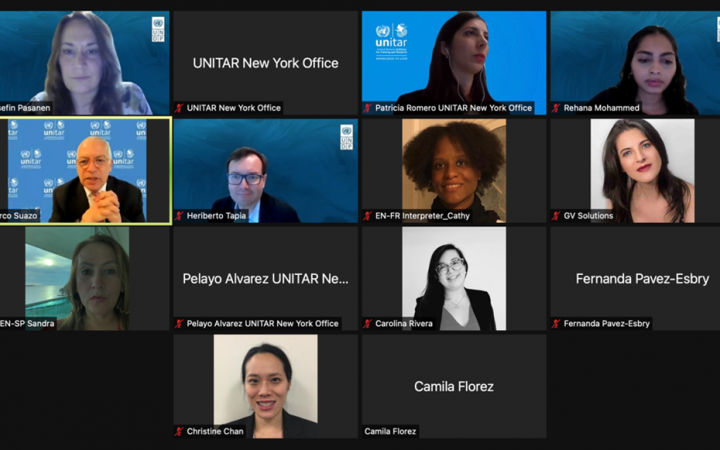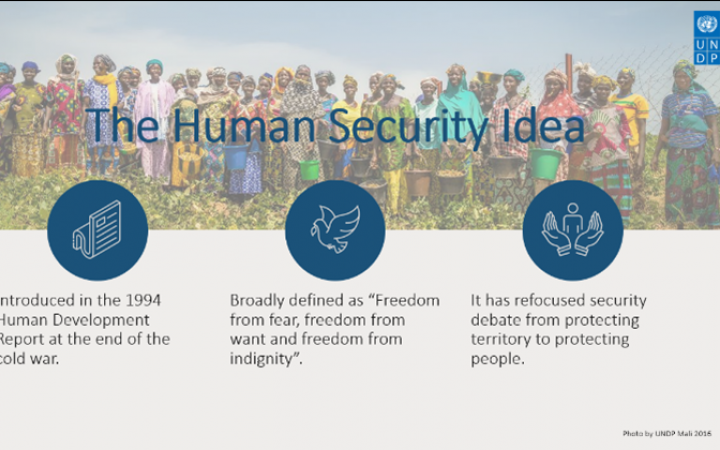19 May 2022, New York, USA – The United Nations Institute for Training and Research (UNITAR) office in New York partnered with the Human Development Report Office (HDRO) from the United Nations Development Programme (UNDP) to organize a virtual workshop on the lessons learned from the Special Human Security Report 2022. The workshop was attended by approximately 150 participants who were able to gain further understanding of new threats to human security in the Anthropocene.
Mr. Pedro Conceição, Director of the Human Development Report Office (HDRO), began by welcoming and thanking the panelists and participants for their presence and desire to share and exchange knowledge. He then introduced Mr. Marco A. Suazo, Head of the UNITAR New York Office, who introduced the workshop on the 2022 Special Human Security Report.
Mr. Heriberto Tapia, Research & Strategic Partnership Advisor at the HDRO, talked about the expansion of human security through greater solidarity, agency, empowerment, and protection. He explained how the 2022 Report aims at revisiting human security in a new Anthropocene context by tackling the globally high level of human security and new generation of emerging threats.
Ms. Josefin Pasanen, Policy Analyst at the HDRO, went on to detail the Report’s findings regarding human security in violent conflict. She emphasized how “studying conflict with the human security lens allows to see the linkages between different threats and policy challenges”, going into further detail about the importance of analyzing the human consequences of violent conflict and expanding traditional metrics.
Ms. Rehana Mohammed, Research Fellow at UNDP, then focused on the link between health and security, detailed emerging global health threats and how we must reform healthcare systems using a human security approach. Ms. Fernanda Pavez-Esbry, Research Consultant at the HDRO, focused on the part of the report about human security and inequalities, how they parallel patterns of human rights violations. All voices must be considered in order to guarantee human security and dignity.
Immediately, Ms. Carolina Rivera, Researcher at the HDRO, detailed the particular experiences of the youth, the elderly, the people on the move, black and indigenous people, women, as well as LGBTQI+ people, regarding their human security. “It is important to acknowledge structures of discrimination, a result of both historical and contemporary policies and institutions rooted in our society.”
Finally, Ms. Christine Chan, Policy and Partnerships Specialist at UNDP, highlighted the addition of the solidarity pillar to those of empowerment and protection, reaffirming the idea of leaving no one behind. She then relied on the case of Cameroon to further demonstrate the objectives of the Report. All panelist collaboratively answered the participants’ questions through a lively Q&A throughout the workshop, before Mr. Suazo delivered his closing remarks.



